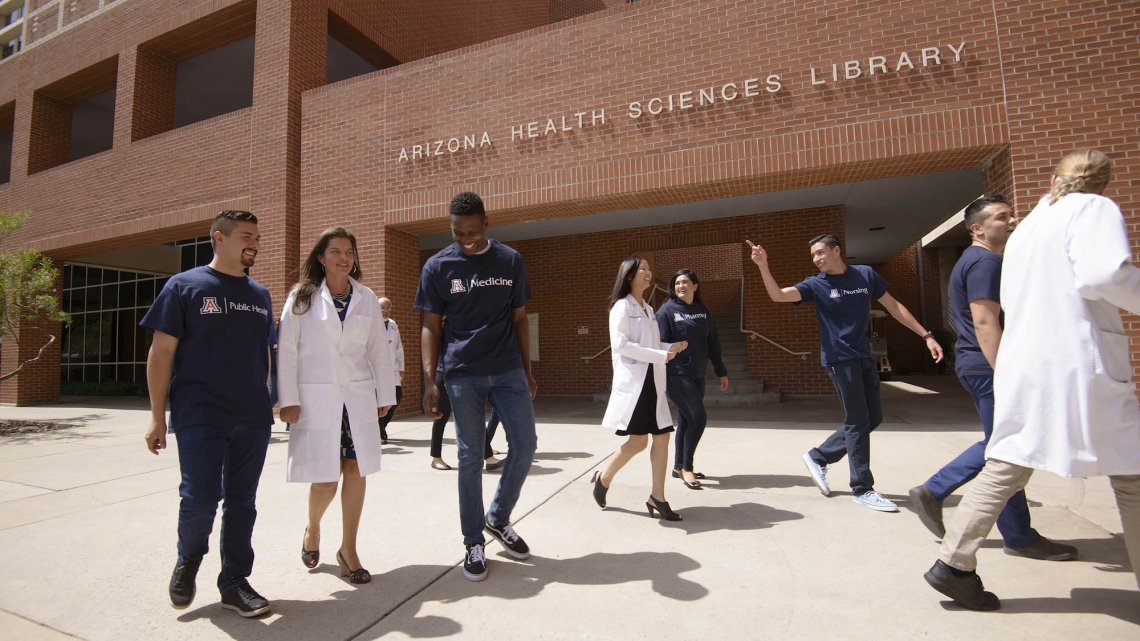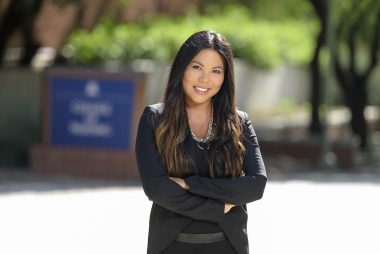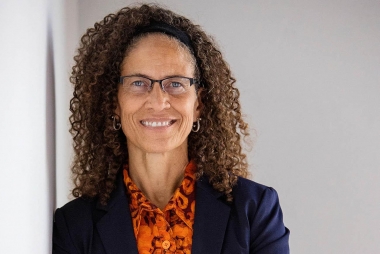Diversity efforts evolve at UArizona Health Sciences colleges

[ad_1]
University of Arizona Health Sciences
Today

Efforts to advance diversity, equity and inclusion shifted into high gear at the University of Arizona Health Sciences’ colleges following the social unrest tied to the May 2020 murder of George Floyd in Minneapolis.
Dr. Francisco Moreno, Health Sciences associate vice president for equity, diversity and inclusion, said outrage over the incident and others like it prompted students, staff, trainees and faculty of all races to call for greater commitment to address ways institutional, historic and systemic racism in medicine might exhibit itself on campus.
“We are in a time in which we have all become keenly aware of the fact that racism is real, it exists and it permeates all structures and institutions,” Moreno said.

“Fortunately, in the past year, leadership at the Health Sciences and colleges has made a sustained effort to build an infrastructure that will work on addressing issues of diversity, equity and inclusion. We are creating strategies and implementing processes that will allow us to advance all aspects of inclusive excellence.”
The UArizona Colleges of Medicine in Tucson and Phoenix have led the Health Sciences on diversity initiatives, he added, and moved in recent years to require training in this area for faculty, staff, residents and other trainees.
The other colleges are developing similar efforts.
College of Nursing
At the UArizona College of Nursing, recognized nationally for its diversity efforts, there’s a desire to see more faces of color among faculty and the student body, said assistant clinical professors Timian Godfrey and Tarnia Newton.
During summer 2020, Arizona Nursing Inclusive Excellence program and master’s nursing students took the initiative to demand greater diversity, equity and inclusion efforts on campus.

“They wanted to see systemic changes happen within our organization, and our dean, Ki Moore, listened. That’s when she created the Equity, Diversity and Inclusion, or ED&I, Task Force,” said Godfrey, who leads the volunteer group along with José Muñoz, now the college’s senior professional for diversity.
The task force ensured the inclusion of the UArizona Indigenous Land Acknowledgement at large gatherings and in all program handbooks and every course syllabus. Working with the Office of the Provost, the task force also revised gender pronoun statements to remove the word “preferred,” Godfrey said.
In addition, a project supported by the Provost Investment Fund to improve ED&I data collection and transparency is underway. An ED&I website was created, along with an ED&I specific pillar in the college’s strategic plan, and changes were made to numerous policies.
Attention now shifts to curriculum revisions, which includes safe zone training. That training involves the Doctor of Nursing Practice program and LGBTQ+ patients, Newton said, to “provide a safe, inclusive environment and affirming health care for all.”
This spring, Newton and Godfrey said, the ED&I Task Force will transition to a standing committee at the College of Nursing as part of shared governance.
College of Public Health
At the Mel and Enid Zuckerman College of Public Health, diversity efforts are funneled through the Committee on Inclusion and Equity, co-chaired by Paloma Beamer, Kacey Ernst and Agnes Attakai. This standing committee engages faculty, staff and students to work toward inclusivity and equity in the workplace, classroom and community, Ernst said.
Ernst stressed social justice has long been among the values of the college, which has hosted a popular Social Justice Symposium each spring for 15 years. Symposium themes illustrate health care inequities and racial disparities as direct contributors to public health challenges. That became readily apparent during social distancing and stay-at-home orders in the pandemic’s first year, she added.
Beamer said following George Floyd’s death, Dean Iman Hakim issued the first-ever statement on systemic racism on behalf of the college. In addition, graduate students in the college “mobilized and provided the Dean’s Council with a report and list of demands,” Beamer said, and faculty, staff and students began lunch-and-learn events and Inclusivity Sessions to Activate Community to explore and expand on ideas from that report.

Photo courtesy of Rachel Marie Castillo/Rachel Marie Photography
“We now have a posting for an assistant dean for diversity, equity and inclusion in direct response to these events,” said Beamer, who co-chairs the recruiting committee with John Ehiri, associate dean for academic affairs. A series of forums over the next month will be used to refine findings from the college’s climate study into other action items.
A new course offering by Deanna Lewis, a lecturer who teaches Introduction to Public Health to undergraduate students, also will put the college at the forefront on diversity issues.
Lewis is a member of the Committee on Inclusion and Equity, the Health Sciences diversity collaborative group, as well as an expert review panelist for the federally funded Regional Public Health Training Center’s Racial Justice Workgroup creating a core competency toolkit for institutions, leaders, faculty, staff and students on diversity, equity and inclusion principles.
She anticipates those core competencies will be required in the next accreditation cycle for the 60-plus accredited U.S. public health colleges and more than 100 accredited public health programs. For the College of Public Health, that accreditation is five years out, but in fall 2022 the college will launch a public health course on LGBTQ+ and gender expansive communities, designed and taught by Lewis, that covers many of those competencies.
“We’re one of a few handfuls of colleges of public health that will have a standalone course that’s specific to this,” Lewis said. “What I’m excited about with the Committee for Inclusion and Equity being in place for the next accreditation cycle is we won’t have to say, ‘Oh, we’re going to be doing these things.’ We will have done them. That’s really important.”
College of Pharmacy
For the R. Ken Coit College of Pharmacy, diversity efforts center on building infrastructure to support an approach published in the Journal of the American Pharmacists Association. Nancy Alvarez, director for diversity, equity and inclusion for the college and associate dean for academic and professional affairs in Phoenix, is coauthor of the paper, “Systemic racism: Pharmacists’ role and responsibility.”
“We need to focus on helping people acknowledge their biases and recognize their influence,” Alvarez said.

She added that the college is just starting to strengthen its efforts, including defining the scope of work for the diversity and inclusion committee. A climate survey will be completed in the spring to help with next steps.
“For us, this early part of the process will direct our future DEI efforts so that they are sustainable and have impact on the members of our college and the patients in our communities,” Alvarez said.
Ted Tong, honored earlier in his 40-year career for his diversity efforts, said pharmacists often have been the voice of health care in many of the country’s underserved communities.
“Pharmacy has a great history in reaching people in these communities. Our pharmacists have contributed significantly to bridging some of those shortages and deficiencies. We go beyond what color we are, what politics we are, and are out there pulling together every day,” Tong said.
And while there still are not many Black pharmacists today, he added, numbers are increasing. A 2020 study showed the percentage of nonwhite pharmacists grew by 46% from 2014 to 2019, with Black pharmacists in the profession more than doubling over that period.
This is the second in a series of stories on anti-racism in medicine initiatives at UArizona Health Sciences that will run during Black History Month. The first story focused on how the Colleges of Medicine have responded to demands for change.
A version of this article originally appeared on the Health Sciences Connect website.
[ad_2]
Source link
